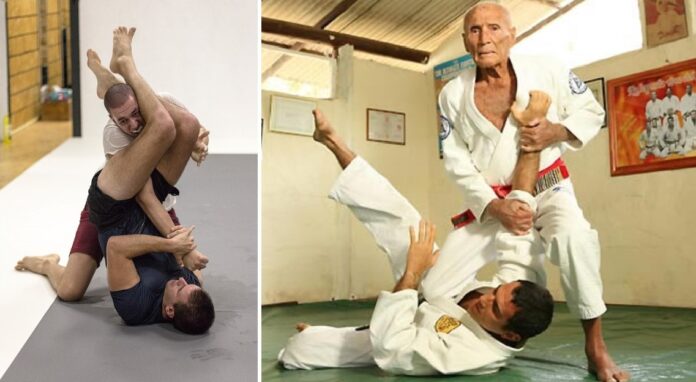
Brazilian Jiu-Jitsu (BJJ) is a multifaceted martial art renowned for its effectiveness in both sport and self-defense. Its roots trace back to a time when it was considered the epitome of combat techniques. This comprehensive guide delves into the various aspects of BJJ, from its historical significance to its modern-day evolution, focusing on both sport and self-defense facets.
1. Brazilian Jiu-Jitsu’s Rise to Fame in Combat
The Legacy of Royce Gracie
BJJ’s reputation as a formidable self-defense art was cemented with Royce Gracie’s victories in the early UFC matches. Videos of Gracie in action showcased BJJ’s supremacy, even against larger opponents. This sparked global interest and prompted many to explore Brazilian Jiu-Jitsu for self-defense.
BJJ vs. Other Martial Arts Styles
Comparative studies with styles like Muay Thai, Krav Maga, and wrestling opened new dialogues about effective self-defense techniques. Still, BJJ’s ground-based approach set it apart as a unique and essential combat skill.
2. Evolution of Brazilian Jiu-Jitsu: Sport vs. Self-Defense
The transformation of BJJ schools’ focus towards sportive techniques led to a gradual shift from its core self-defense principles. This section explores the distinction between the two.
Sport-Oriented BJJ
Sport BJJ emphasizes winning point competitions and ground-based strategies. It often overlooks standing positions and strikes defense and offense. The growing popularity of sport BJJ tournaments has led to this specific focus in many training schools.
Self-Defense-Oriented BJJ
Contrarily, self-defense BJJ encompasses a holistic approach that includes techniques to defend against strikes, use strikes, and achieve takedowns. Some schools excel in balancing sport and self-defense, offering a comprehensive BJJ experience.
3. Striking a Balance: Sport and Self-Defense in Brazilian Jiu-Jitsu Training
BJJ does not necessitate a binary choice between sport or self-defense. Its expansive nature encourages practitioners to explore both aspects without limiting themselves.
Benefits of Sport BJJ
Sport BJJ provides an avenue for high-intensity, injury-free training. Competing in tournaments can help acclimate oneself to real-world stress and improve performance in actual confrontations.
Importance of Self-Defense BJJ
Ignoring the self-defense side may lead to unpleasant surprises in real combat scenarios. Simple slaps, headlocks, or basic jabs can disrupt sport-trained techniques. A well-rounded approach is crucial for true mastery of BJJ.
4. Encouraging Open Dialogue and Exploration
Whether at a sport-only BJJ school or a self-defense-only dojo, open communication with your coach can lead to a more diverse and enriching training experience.
Asking for Specific Training
Coaches are often willing to share their knowledge in both aspects of the art. If your current school lacks what you desire, consider attending seminars, and workshops, or finding alternative training locations that embrace the full spectrum of BJJ.
Embracing All Facets of BJJ
Engage with different techniques, training with strikes involved, or discovering a passion for the sports side. The key is not to be afraid to ask and explore.
5. Conclusion: The Dynamic World of Brazilian Jiu-Jitsu
The allure of Brazilian Jiu-Jitsu lies in its multifaceted nature, serving both as a sport and self-defense method. It is an art that has rapidly evolved, offering endless opportunities for exploration, growth, and mastery.
Choosing to engage with both the sport and self-defense aspects of BJJ enhances the training experience, leading to a more comprehensive understanding of this rich martial art. As trends continue to evolve, the true practitioner of Brazilian Jiu-Jitsu embraces the entire scope of this martial art form.
Whether you’re seeking effective self-defense techniques, the thrill of sport competition, or a blend of both, Brazilian Jiu-Jitsu offers a dynamic and fulfilling journey. Explore the richness of BJJ with a curious mind and open heart, and let this unique martial art form guide you toward personal growth and empowerment.
Frequently Asked Questions
Q: What is the main difference between sport BJJ and self-defense BJJ?
A: Sport BJJ focuses on competition, techniques to score points, and ground control, while self-defense BJJ emphasizes real-world applications, including defense against strikes and awareness of surroundings.
Q: Is Brazilian Jiu-Jitsu effective for self-defense?
A: Yes, BJJ is highly regarded for its self-defense capabilities. It teaches techniques for controlling an opponent using leverage, enabling someone to defend against larger and stronger attackers.
Q: How can I find a BJJ school that teaches both sport and self-defense?
A: Researching local schools, reading reviews, and talking to coaches or instructors about their curriculum can help you find a BJJ school that balances sports competition and self-defense training.
Q: Can I train in BJJ solely for fitness and not for competition or self-defense?
A: Absolutely! Many people train in BJJ for fitness, camaraderie, and personal growth, without necessarily engaging in competitions or focusing on self-defense.
Q: What are the basic techniques I should learn in BJJ?
A: BJJ involves learning various techniques, including takedowns, submissions, guard positions, and escapes. Both sport and self-defense training include these fundamental elements but may emphasize different aspects.
Q: How long does it take to become proficient in BJJ?
A: Proficiency in BJJ depends on factors like frequency of training, individual effort, and instructional quality. Typically, consistent training over a few months to a year can lead to noticeable improvements.
Q: Is Brazilian Jiu-Jitsu safe to practice?
A: Like all physical activities, BJJ carries some risk of injury. However, with proper instruction, adherence to safety protocols, and mindful practice, it can be a safe and rewarding endeavor.
Q: Can children practice Brazilian Jiu-Jitsu?
A: Yes, many BJJ schools offer programs specifically designed for children. These programs focus on fitness, discipline, teamwork, and self-confidence, often in a fun and supportive environment.
Q: What equipment do I need to start training in BJJ?
A: Generally, a BJJ Gi (uniform) is required for traditional training. Some schools also offer no-Gi classes, where athletic wear like rash guards and grappling shorts are appropriate.
Q: How does BJJ complement other martial arts like Muay Thai or Krav Maga?
A: BJJ’s focus on ground fighting and submissions complements striking arts like Muay Thai and Krav Maga. Together, they provide more comprehensive self-defense or mixed martial arts (MMA) skill set.


![Darce Choke Encyclopedia – Origins, Mechanics and Variations [2025] BJJ, choke, Brabo, BJJ Darce Choke, D'arce Choke, Darce BJJ Choke](https://bjj-world.com/wp-content/uploads/2017/11/JungPoirierLeeYahoo-218x150.jpg)







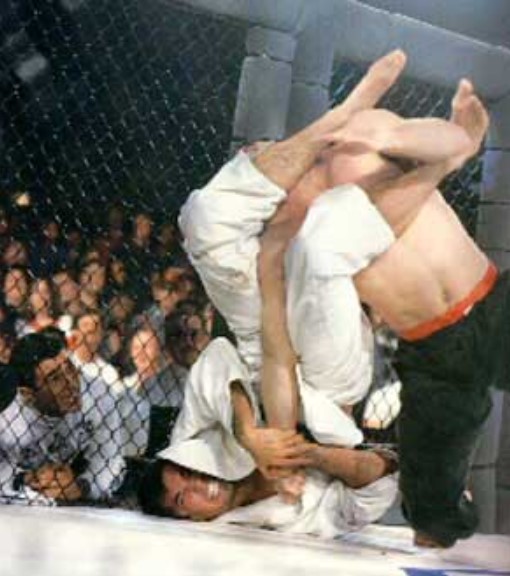
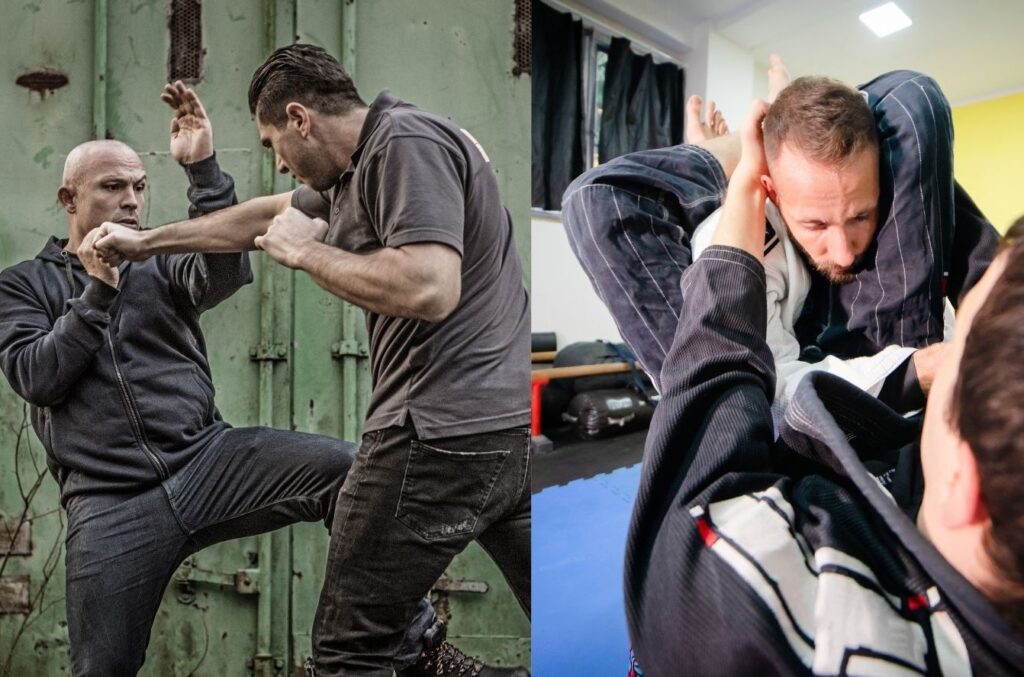
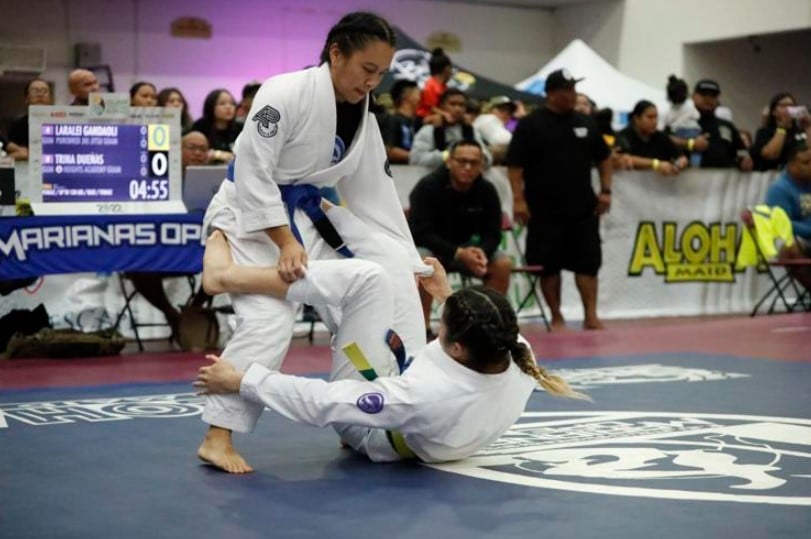
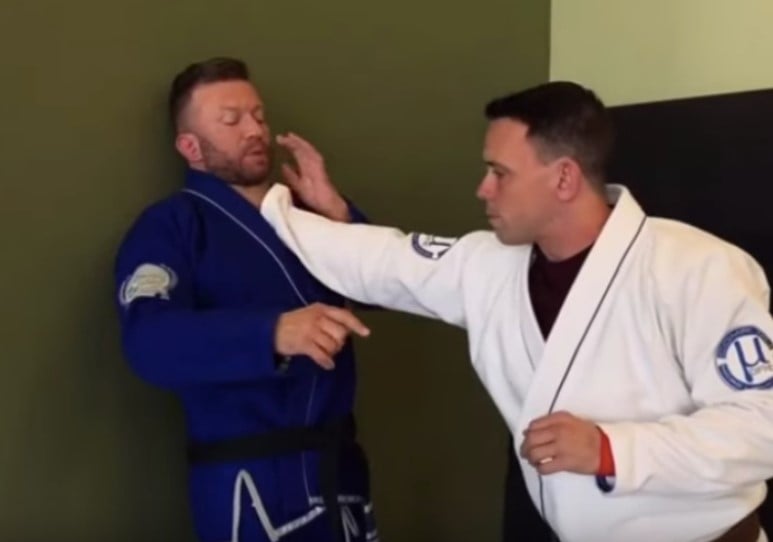
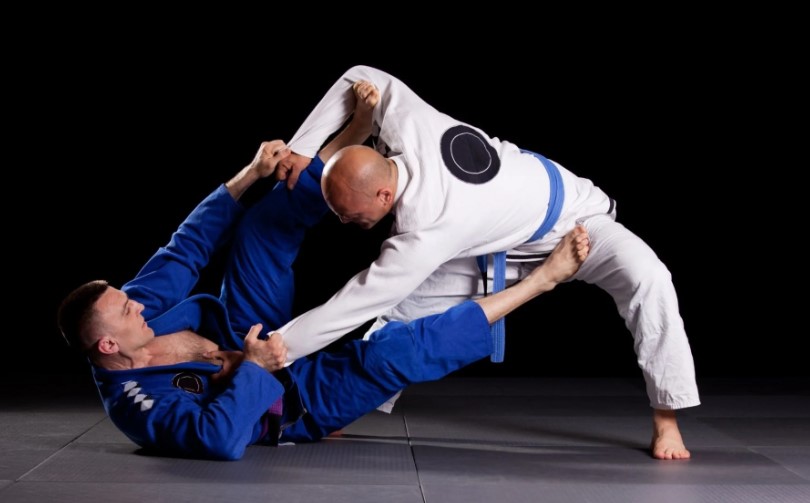
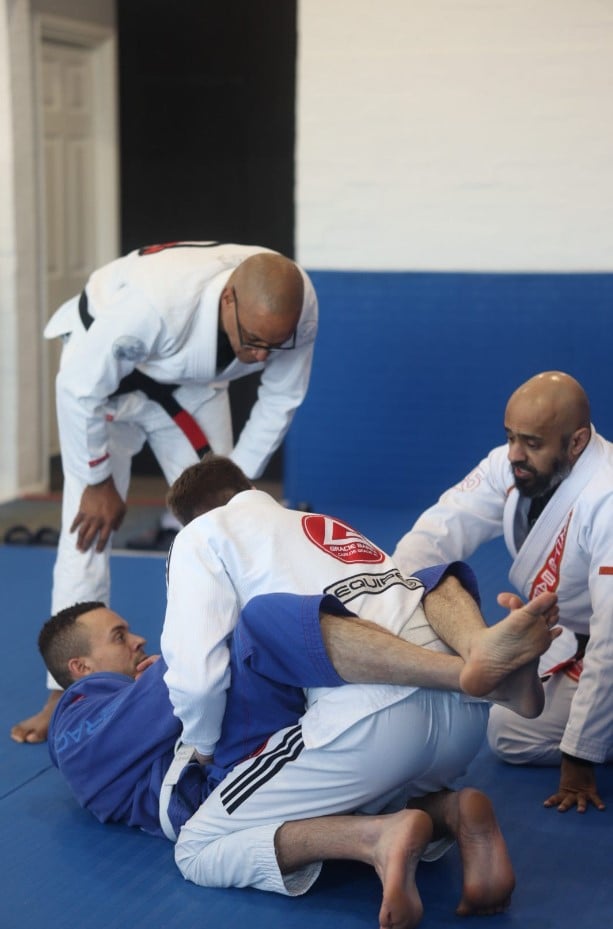
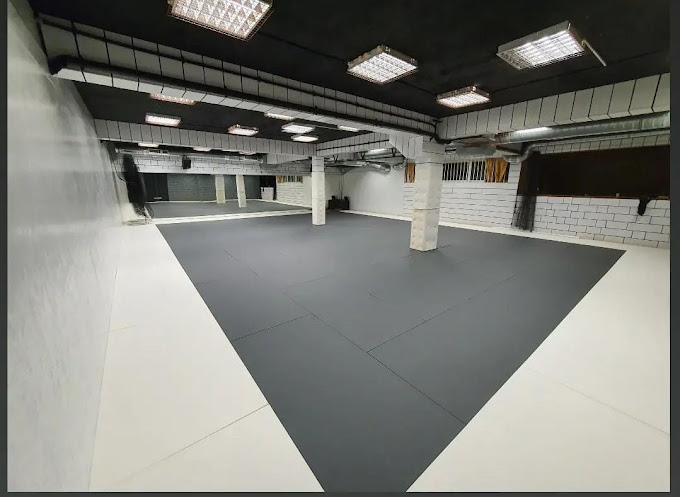



![[VIDEO] Ex-UFC Champ Aljamain Sterling Gets Choked Out Cold on Russian TUF-Style Show VIDEO - Aljamain Sterling Gets Choked Out Cold on Russian Reality Show](https://bjj-world.com/wp-content/uploads/2025/04/LEG-GRABS-2-218x150.png)
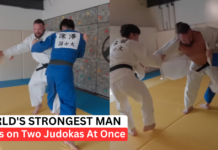

![Slicin’ Calves Mikey Musumeci DVD Review [2025] Slicin' Calves Mikey Musumeci DVD Review](https://bjj-world.com/wp-content/uploads/2025/04/slicin-calves-mikey-musumeci-dvd-review-218x150.png)
![Jiu-Jitsu For Old Guys Guard Retention Bernardo Faria DVD Review [2025] Jiu-Jitsu For Old Guys Guard Retention Bernardo Faria DVD Review](https://bjj-world.com/wp-content/uploads/2025/03/old-guys-guard-retention-bernardo-faria-dvd-review-218x150.png)
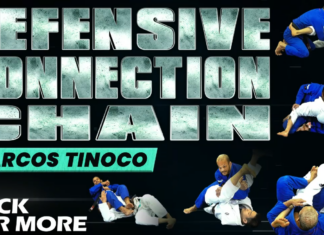
![Jett Thompson Master Ankle and Aoki Lock DVD Review [2024] Jett Thompson Master Ankle and Aoki Lock DVD Review](https://bjj-world.com/wp-content/uploads/2024/09/jett-thompson-master-ankle-and-aoki-lock-dvd-review-100x70.png)


![How To Knee Cut Junny Ocasio BJJ DVD Review [2025] How To Knee Cut Junny Ocasio BJJ DVD Review](https://bjj-world.com/wp-content/uploads/2025/02/how-to-knee-cut-junny-ocasio-bjj-dvd-review-100x70.png)
![Crush The Guard Vagner Rocha DVD Review [2024] Crush The Guard Vagner Rocha DVD Review](https://bjj-world.com/wp-content/uploads/2024/10/crush-the-guard-vagner-rocha-dvd-review-100x70.png)
![Modern Split Squat Passing Jason Rau DVD Review [2024] Modern Split Squat Passing Jason Rau DVD Review](https://bjj-world.com/wp-content/uploads/2024/11/modern-split-squat-passing-jason-rau-dvd-review-100x70.png)
![How to Double Leg Anyone Kevin Lee DVD Review [2024] How to Double Leg Anyone Kevin Lee DVD Review](https://bjj-world.com/wp-content/uploads/2024/11/how-to-double-leg-anyone-kevin-lee-dvd-review-100x70.png)








![Upper Body Chain Attacks Janine Mocaiber DVD Review [2025] Upper Body Chain Attacks Janine Mocaiber DVD Review](https://bjj-world.com/wp-content/uploads/2025/03/upper-body-chain-attacks-janine-mocaiber-dvd-review-100x70.png)
![No-Gi Grapplers Guide To Front Headlock Joel Bane DVD Review [2025] No-Gi Grapplers Guide To Front Headlock Joel Bane DVD Review](https://bjj-world.com/wp-content/uploads/2025/03/no-gi-front-headlock-joel-bane-dvd-review-100x70.png)
![Essential Shin To Shin System Shawn Williams DVD Review [2025] Essential Shin To Shin System Shawn Williams DVD Review](https://bjj-world.com/wp-content/uploads/2025/01/shin-to-shin-system-shawn-williams-dvd-review-100x70.png)


![Advanced Chin Control Concepts David Petrone DVD Review [2025] Advanced Chin Control Concepts David Petrone DVD Review](https://bjj-world.com/wp-content/uploads/2025/01/chin-control-concepts-david-petrone-dvd-review-100x70.png)


![Gracie Secrets Closed Guard Kyra Gracie DVD Review [2024] Gracie Secrets Closed Guard Kyra Gracie DVD Review](https://bjj-world.com/wp-content/uploads/2024/12/closed-guard-kyra-gracie-dvd-review-100x70.png)


![Baby Shark Guard System Diogo Reis DVD Review [2025] Baby Shark Guard System Diogo Reis DVD Review](https://bjj-world.com/wp-content/uploads/2025/02/baby-shark-guard-system-diogo-reis-dvd-review-100x70.png)
![Darragh O’Conaill Crucifix Encyclopedia DVD Review [2024] Darragh O'Conaill Crucifix Encyclopedia DVD Review](https://bjj-world.com/wp-content/uploads/2024/10/darragh-oconaill-crucifix-encyclopedia-dvd-review-100x70.png)